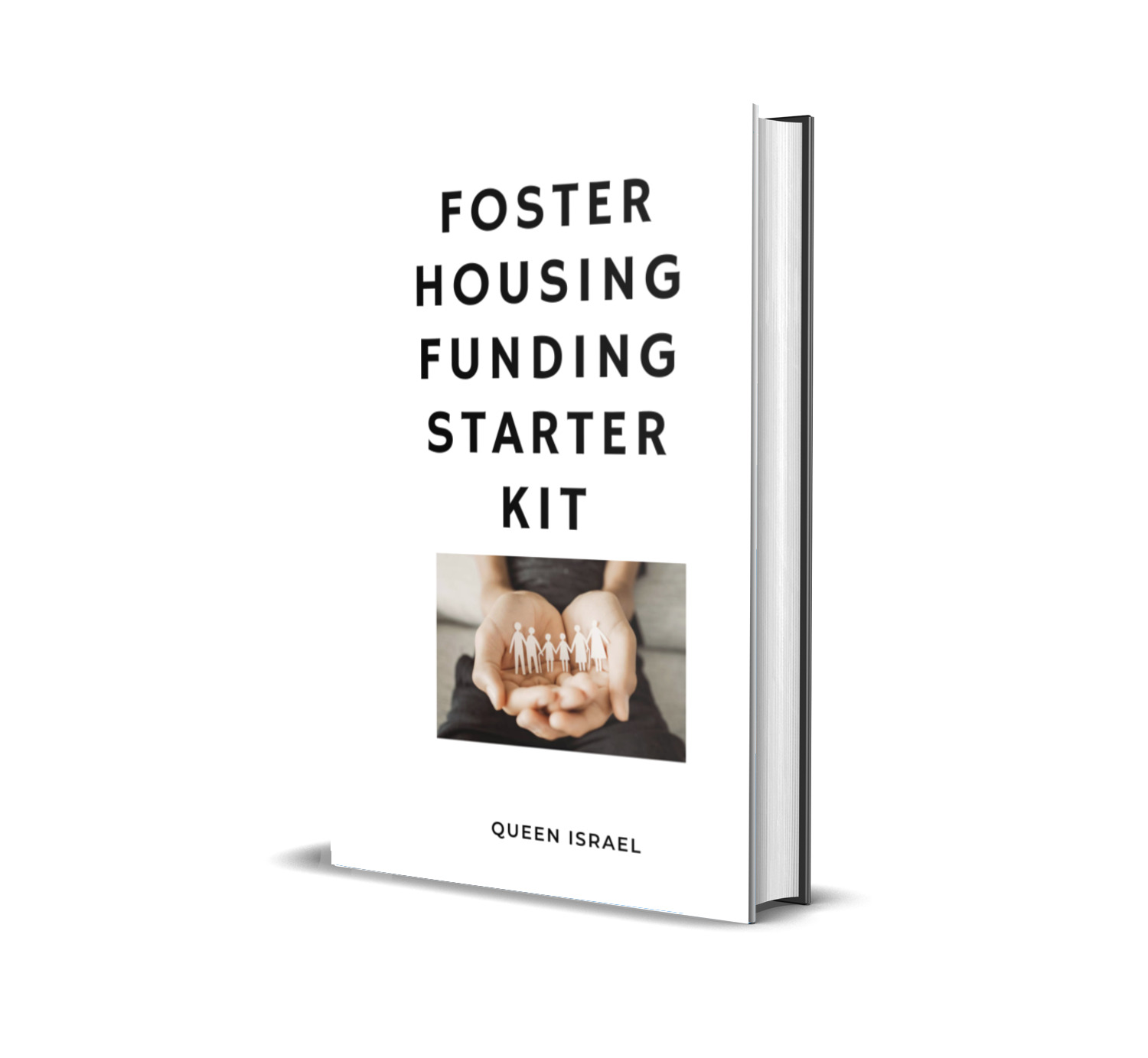Are you a plumber, a small plumbing business owner, or a nonprofit organization working to support plumbing-related projects? If you are, then you’ll be happy to know that plumbing grants are available to support your initiatives.
In this article, we will explore everything you need to know about plumbing grants – from how to apply to where to find them and what kind of projects they support – with practical advice, real-world examples, data, and powerful hooks.
What Are Plumbing Grants?
Plumbing grants are a form of financial assistance provided by government bodies, nonprofit organizations, and private foundations to support plumbing-related projects.
These grants can help cover a variety of costs, such as the purchase of plumbing equipment, training and certifications, infrastructure repairs, and even the development of plumbing-related services in underserved communities.
While grants specifically targeting the plumbing industry are rare, there are numerous funding opportunities that include plumbing as a part of larger initiatives, such as public health, community development, and disaster relief programs. These funds can help improve water sanitation, provide water access to communities, or train new plumbers to meet growing demand.
The opportunity behind plumbing grants can be life-changing, both for individuals wanting to launch or expand their plumbing careers and for communities in need of safe water solutions. But, as with any grant application process, doing your homework, understanding requirements, and presenting a convincing case are key.
The Importance of Plumbing in Society
Plumbing is more than just fixing leaks or installing pipes – it’s an essential service that impacts public health, environmental sustainability, and community development. In fact, studies by the World Health Organization show that proper plumbing systems are a cornerstone of disease prevention and health promotion. By improving plumbing infrastructure, communities can reduce waterborne diseases, increase sanitation, and improve quality of life.
These insights emphasize why plumbing grants matter. They don’t just fund repairs or business expansion; they contribute to greater societal health and environmental stewardship.
Types of Plumbing Grants Available
There are various plumbing-related grants available for different needs. Understanding the types can help pinpoint the right opportunities. Let’s dive into some of the common categories:
1. Government Grants
Government funding is one of the most significant sources for plumbing grants. Various federal, state, and local government agencies provide grants to support public health initiatives, including clean water systems, wastewater treatment, and plumbing infrastructure. For instance:
- U.S. Environmental Protection Agency (EPA) offers grants for water quality improvement, sanitation infrastructure, and environmental health projects that often include plumbing solutions. The EPA’s Water Infrastructure Grants can sometimes be used for essential plumbing-related projects.
- The Department of Housing and Urban Development (HUD) provides funding for community development programs, which can include plumbing services and repairs for low-income households. Through programs like Community Development Block Grants (CDBG), many local initiatives support infrastructure improvements that incorporate plumbing.
Why is this important? Government grants typically come with rigorous review processes and accountability measures, but they also offer substantial funding that can transform small communities or business ventures.
2. Nonprofit and Community-Based Grants
Nonprofits and community-based organizations often provide grants to improve public infrastructure and provide plumbing services in low-income areas. For example:
- The American Red Cross occasionally supports plumbing services during disaster relief efforts to ensure communities have access to clean water. In times of crisis, quick and efficient plumbing services can mitigate health risks associated with contaminated water.
- Local Foundations such as community development organizations often have grants available for plumbing projects that serve the public, from plumbing repairs to water distribution systems.
These grants are geared toward community benefit rather than profit, and they can often be more flexible than governmental grants, tailoring their requirements to the unique needs of the community.
3. Private Sector Grants
Some plumbing supply companies, manufacturers, or private foundations also offer grants to support plumbing-related educational programs, workforce development, and small businesses. These grants often support initiatives to advance the plumbing industry or help disadvantaged individuals get plumbing services they need.
- Manufacturers and Suppliers might provide grants for innovative projects that use their products or services, supporting sustainability or efficiency improvements in plumbing systems.
- Industry-Specific Foundations often set aside funds to encourage trade skills among youth or unemployed individuals, promising a healthier pipeline for future plumbers.
4. Training and Certification Grants
If you are looking to become certified or enhance your plumbing skills, there are several grants to support your education:
- Trade and Industry Certification Grants can help cover the cost of training courses, certifications, and seminars that are critical to advancing a career in plumbing. These grants are often provided by industry-specific associations or private foundations.
- For instance, NAPHCC (National Association of Plumbing-Heating-Cooling Contractors) sometimes offers grants or scholarships to help trade professionals further their education.
How to Apply for Plumbing Grants
Applying for plumbing grants might seem daunting at first, but breaking it down into manageable steps can simplify the process. Here’s a conversational walkthrough that anyone can understand:
1. Identify Relevant Grants
The first step is identifying grants that match your plumbing project or needs. Whether you’re looking for funding for plumbing training, infrastructure repairs, or community development, look for grants that specifically support your cause.
How to do this:
- Use websites like Grants.gov, which is the central resource for federal grants in the U.S. This site allows you to search by category, keyword, or eligibility.
- Explore the Foundation Center, which offers databases of grants from private sources.
- Check local government and community foundation websites for region-specific grant opportunities.
2. Prepare a Compelling Proposal
A strong proposal is your ticket to securing funds. Most grant applications require a detailed proposal that outlines your project’s goals, scope, budget, and expected outcomes. Here’s how to nail it:
- Be Specific: Clearly define the problem your plumbing project will solve. Use simple language that communicates the importance of your work.
- Show Impact: Use statistics to back up your claims. For example, “According to the CDC, improved plumbing in underserved areas can reduce waterborne illnesses by up to 40%.”
- Set Clear Goals: Outline measurable outcomes such as “installation of plumbing systems in 50 homes within 12 months” or “training 25 apprentice plumbers to meet industry standards.”
Crafting a narrative that connects emotionally with the reader while providing factual data can significantly increase your chance of success.
3. Gather Supporting Documentation
You will typically need to provide supporting documents such as proof of your plumbing certification, business registration, tax identification number, and other legal documents. Make sure to have everything ready before you submit your application.
Helpful tip: Create a checklist of required documents for each grant you apply for. This ensures you don’t miss anything important and streamlines the process.
4. Follow the Instructions
Each grant has its own set of requirements, including deadlines, budget limits, and eligible applicants. Make sure to read the grant instructions carefully and submit everything requested in the correct format. Following instructions to the letter is crucial to securing funding.
Remember:
- If the grant asks for a budget breakdown, don’t just submit a lump sum. Detail every expense.
- Respect word counts, file types, and submission deadlines. Grant committees appreciate attention to detail.
5. Submit and Follow Up
Once your application is ready, submit it before the deadline and keep track of its status. Some grants may require additional information or clarification, so be sure to respond promptly.
Pro tip: Keep a record of all communications with the grant provider. If you haven’t heard back within the expected time frame, politely follow up to inquire about the status of your application.
Common Mistakes to Avoid When Applying for Plumbing Grants
Applying for grants can be competitive, and certain pitfalls might reduce your chances of success. Here are some common mistakes to avoid:
1. Not Aligning with the Grant’s Mission
Every grant has a purpose. It’s essential to ensure that your project aligns with the grant’s objectives. If you’re applying for funding to improve plumbing infrastructure, for instance, it may not be appropriate to request funds for business expansion or unrelated services. Always tailor your proposal to reflect the grant’s goals.
2. Failing to Follow Instructions
Not adhering to the specific requirements of the grant application can result in disqualification. Always follow the instructions closely to ensure your application is complete. Common errors include missing deadlines, not following formatting rules, and incomplete documentation.
3. Lack of Detail in the Proposal
A vague proposal is less likely to gain attention. Be specific about how the funds will be used, the timeline, and the measurable outcomes of your project. Use charts, graphs, or images if allowed and relevant, to visually convey your message.
4. Ignoring the Impact of Your Project
Funders want to know how your plumbing project will benefit the community or your business. Demonstrating the long-term impact of your project will make your application more compelling. Include success metrics such as:
- Number of households benefitted,
- Reduction in water waste or increased efficiency,
- Improvement in public health statistics.
Key Resources for Plumbing Grants
To help you get started on your plumbing grant journey, here are some resources to explore:
- Grants.gov: The primary source for federal grants in the U.S. This website includes a variety of funding opportunities, including those related to public health and infrastructure.
- EPA’s Clean Water State Revolving Fund (CWSRF): This fund provides grants to communities to improve their wastewater and drinking water systems, often covering plumbing infrastructure upgrades.
- National Association of Plumbing-Heating-Cooling Contractors (NAPHCC): Offers scholarships and grants for plumbing businesses and tradespeople looking to further their education or improve their business practices.
- Local Community Foundations: Many local foundations provide grants for water-related projects, including those focused on plumbing services in underserved areas. Searching your local community foundation’s website can reveal opportunities directly impacting your area.
Plumbing Grants for Small Businesses
If you’re a small plumbing business owner, you might be eligible for small business grants or loans that can help you expand your business, purchase necessary equipment, or improve your services. Agencies like the Small Business Administration (SBA) provide funding opportunities for small businesses in the plumbing industry. These grants are often intended for business development, such as hiring employees, purchasing tools, or expanding operations.
Tips for Small Business Owners:
- Business Plan: A clear, well-structured business plan can increase your chances of securing funding. Detail how the grant will directly affect the growth and sustainability of your business.
- Community Involvement: Demonstrate how your business contributes to community wellbeing through improved services or job creation.
- Financial Statements: Provide transparent financial records to show your business’s stability and how funding will be allocated effectively.
Additionally, some private foundations and local chambers of commerce offer grants or low-interest loans to small businesses that promote local economic development, and many of these grants can support plumbing businesses.
Plumbing Grants for Water Access Projects
In addition to providing plumbing services to individuals and businesses, plumbing grants are also available to support water access initiatives, particularly in low-income and rural areas. These grants focus on improving water infrastructure, providing clean water solutions, and addressing public health needs.
For example:
- The Water Quality Improvement Grant Program provides federal funding for projects that improve water quality and wastewater systems, including plumbing infrastructure. This program might cover the replacement of old pipes, installation of new water-saving fixtures, or implementation of water purification systems.
- The Low-Income Energy Assistance Program (LIHEAP) offers grants to support low-income households with access to safe water and sanitation, including plumbing repairs. This program can help cover the cost of fixing leaks, installing low-flow fixtures, or upgrading outdated plumbing that compromises water safety.
These projects often require collaboration with local governments, community organizations, and other stakeholders to ensure sustainable, long-term improvements.
Leveraging Data and Research in Your Proposal
Using data and statistics can dramatically improve your grant proposal by highlighting the urgency and impact of your project. For instance:
- Cite data from the Centers for Disease Control and Prevention (CDC) on the health impacts of poor plumbing.
- Use Infographics or charts to illustrate the scope of a problem, such as the percentage of homes without safe plumbing in your community.
- Refer to studies from the World Health Organization on the benefits of improved water and sanitation.
By grounding your proposal in reliable data, you build credibility and show that you have a well-researched plan.
How Grant Writing Academy Can Help You Succeed
If you want to maximize your chances of securing a plumbing grant, subscribing to the Grant Writing Academy Newsletter can be a game-changer. Our newsletter offers exclusive tips, strategies, templates, tools, and resources designed to enhance your success rates in grant writing.
What you’ll gain by subscribing:
- Step-by-Step Guidance: From finding the right grants to crafting a compelling proposal, we break down every part of the process in a conversational, easy-to-understand manner.
- Templates: Save time with proven templates that you can customize for your plumbing grant applications.
- Tips and Strategies: Learn how to avoid common pitfalls and present a persuasive case that stands out to reviewers.
- Real-Life Success Stories: Gain inspiration and practical insights from individuals and organizations who successfully secured plumbing grants.
- Tools and Resources: Access resources like budget planning tools, timeline trackers, and checklists to manage your grant applications efficiently.
These insights can mean the difference between a successful grant application and a missed opportunity. Our friendly approach ensures that whether you’re new to grant writing or looking to refine your skills, you have the support you need.
Ready to improve your grant writing? Subscribe to our newsletter today and unlock exclusive resources designed to help you succeed. It’s free, and you’ll gain access to insider knowledge that will enhance your success rates dramatically.
Additional Resources and Support
a) Expand Your Knowledge
The grant writing field is always evolving. Keep learning and improving your skills to stay competitive.
Recommended Resources:
- Request for Proposal Success: How to Write Proposals That Win: Learn the techniques and strategies to create standout proposals.
- Tech Startup Funding Secrets: Navigating Grants for Maximum Growth: Perfect for those in the tech sector looking to leverage grants for scaling.
- Grant Proposal Guide for Environmental Projects: Tailored for environmental initiatives seeking to secure impactful funding.
- The Ultimate Guide to Federal Grant Applications: Techniques for Success: Master the complexities of federal grants with actionable insights.
Explore More Books Here
b) Invest in Expert Guidance
Want to fast-track your growth and achieve even more success?
Join one of our mentorship programs for tailored advice and support:
Mentorship Programs:
- 3-Month Mentorship: The Foundation Builder: A short-term plan to refine your grant writing skills and win your first (or next) grant.
- 6-Month Mentorship: The Proposal Pro: Dive deeper into strategies, proposal reviews, and funding plans.
- 1-Year Mentorship: The Funding Champion: Build long-term success with comprehensive guidance, unlimited reviews, and exclusive resources.
C) Book a One-on-One Consultation
Sometimes you just need personalized advice to tackle challenges or fine-tune your strategy. Let’s work together to solve your unique grant writing challenges.
Book a Consultation Call Here
Conclusion
Plumbing grants offer a fantastic opportunity to fund projects that improve water access, public health, and the plumbing industry.
Remember, the key to success lies in thorough research, a well-prepared application, and leveraging resources like the Grant Writing Academy Newsletter to get insider tips and strategies. With dedication, the right tools, and persistent effort, you can secure the funding you need for your plumbing projects and propel your goals forward.
Don’t wait—start your journey to grant success today by subscribing and taking advantage of these invaluable resources!







jilivip https://www.jilivipu.net